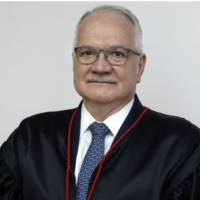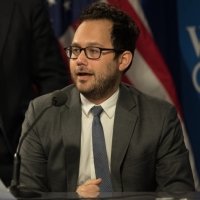Preparations and Challenges Ahead of Brazil's 2022 Presidential Election
Submit a question
With less than 100 days until Brazil’s presidential election, the contest between Jair Bolsonaro and Luiz Inácio “Lula” da Silva is entering its final stretch. And at a moment of political polarization in the country, Brazil’s electoral process and institutions are increasingly under the spotlight as election day nears.
Ahead of October, what steps have been taken by Brazil’s Superior Electoral Court to ensure that this year’s election is transparent and credible? What challenges may still emerge and how would they differ from past elections? And what are the roles of the Supreme Court and the Superior Electoral Court in cultivating and/or restoring public confidence in the electoral system?
The Wilson Center’s Brazil Institute hosted a presentation on these questions and more with Brazilian Federal Supreme Court Justice and Superior Electoral Court President, Minister Edson Fachin. Following Minister Fachin’s remarks, Brazil Institute Senior Advisor Nick Zimmerman lead a moderated Q&A session.
Luiz Edson Fachin
The current president of Brazil’s Superior Electoral Court, Justice Luiz Edson Fachin was appointed to the Federal Supreme Court in 2015. Minister Fachin holds a PhD in Law from the Pontifical Catholic University of São Paulo and conducted post-doctoral studies through the Faculty Research Program of the International Council of Canadian Studies. Justice Fachin has also served as a full professor at the Federal University of Paraná, visiting lecturer at King's College (United Kingdom), and visiting researcher at the Max Planck Institute (Germany). He is an editorial board member of several specialized periodicals and author of several legal publications. He also worked as an attorney for the State of Paraná.
Selected Quotes
Luiz Edson Fachin
"The attention we have promised to awaken in the international community and the attention we have received from institutions in the international community has been very important for the exchange of ideas and we have been able to intensify those relationships."
"All 21 political parties that have a seat in the National Congress compromise to adopt a policy of integrity when communicating their concerns."
" At the electoral tribunal, we feel prepared to perform our duty, which includes organizing the elections on October 2nd and delivering the Brazilian population the results they deserve."
"That form of check and balances operates in a way that the powers are harmonious and independent amongst themselves, but the equation of the Brazilian portion is that they are independent and harmonious. Independence comes first, and harmony comes after. This means that there is no hierarchy amongst those powers."
Speaker

Moderator

Hosted By

Brazil Institute
The Brazil Institute—the only country-specific policy institution focused on Brazil in Washington—aims to deepen understanding of Brazil’s complex landscape and strengthen relations between Brazilian and US institutions across all sectors. Read more


Latin America Program
The Wilson Center’s prestigious Latin America Program provides non-partisan expertise to a broad community of decision makers in the United States and Latin America on critical policy issues facing the Hemisphere. The Program provides insightful and actionable research for policymakers, private sector leaders, journalists, and public intellectuals in the United States and Latin America. To bridge the gap between scholarship and policy action, it fosters new inquiry, sponsors high-level public and private meetings among multiple stakeholders, and explores policy options to improve outcomes for citizens throughout the Americas. Drawing on the Wilson Center’s strength as the nation’s key non-partisan policy forum, the Program serves as a trusted source of analysis and a vital point of contact between the worlds of scholarship and action. Read more
